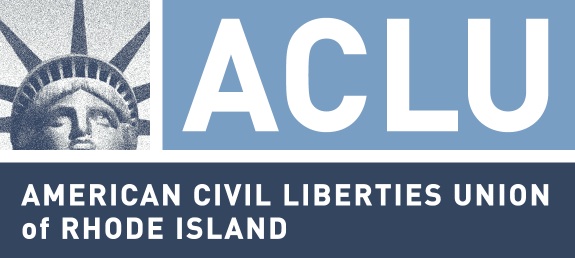 Despite growing consensus that out-of-school suspensions should only be used as a discipline of last resort, Rhode Island school districts continued to overuse suspensions during the 2014-2015 school year, a report by the American Civil Liberties Union of Rhode Island has found. The report, Oversuspended and Underserved, a follow-up to previous ACLU reports on the use of suspensions in Rhode Island public schools, found that schools doled out 12,682 suspensions in the last school year, often for minor misconduct. As in previous years, students with disabilities and students of color served a disproportionate amount of these suspensions.
Despite growing consensus that out-of-school suspensions should only be used as a discipline of last resort, Rhode Island school districts continued to overuse suspensions during the 2014-2015 school year, a report by the American Civil Liberties Union of Rhode Island has found. The report, Oversuspended and Underserved, a follow-up to previous ACLU reports on the use of suspensions in Rhode Island public schools, found that schools doled out 12,682 suspensions in the last school year, often for minor misconduct. As in previous years, students with disabilities and students of color served a disproportionate amount of these suspensions.
While some school districts, education officials, and policymakers have acknowledged the need to address Rhode Island’s suspension problem, today’s report finds that much still needs to be done to address the persistent over-suspensions of even the youngest students. Among the report’s findings for the 2014-2015 school year:
- The suspensions meted out last year resulted in more than 25,000 lost school days.
- Over 1,000 elementary school students were suspended from school. Seventy-five of them were in kindergarten alone.
- More than 60% of all suspensions were meted out for low-risk behavioral offenses such as “Disorderly Conduct” or “Insubordination/Disrespect.”
- Black elementary school children were nearly six times more likely than their white classmates to be suspended from school. Hispanic children were three and a half times more likely than their white elementary school counterparts to be suspended.
- Students with disabilities who have Individualized Education Plans were over two-and-a-half times more likely than a student without disabilities to be suspended from school.
- More than two-thirds of the suspensions levied against high school students with IEPs were for low-risk offenses – exactly the punishment that IEPs should help these students avoid.
The report comes on the heels of the Rhode Island General Assembly’s near-approval this year of legislation to limit the use of suspensions to only those situations in which a child poses a serious physical risk, or when the student is disruptive and other methods to address his or her conduct have failed. The ACLU recommended that the General Assembly enact this legislation as soon as it convenes for its 2016 session.
Among its other recommendations, the report called on the Rhode Island Department of Education to work with districts to determine appropriate solutions for high suspension rates, and for school districts to work with the community to investigate alternative disciplinary methods. The ACLU also reminded parents of their right to appeal suspensions that they feel have been unfairly imposed.
Hillary Davis, ACLU of RI policy associate and the report’s author, said today: “Rhode Island’s children with disabilities and children of color have for too long borne the brunt of a system over-reliant on removing children from the classroom rather than correcting their behavior. The last school year was no exception. Our children deserve the opportunity to learn from their mistakes rather than potentially face a lifetime of severe consequences. Earlier this year, the General Assembly stood poised to make Rhode Island a leader in protecting children from the over-reliance on suspensions. We hope that swift action when the General Assembly reconvenes in January ensures that Rhode Island’s children will no longer find themselves cast out of school because of a bad day.”
A copy of the report is available here.
Previous ACLU of RI reports on school suspensions are available here.
[From an American Civil Liberties Union of Rhode Island press release]



